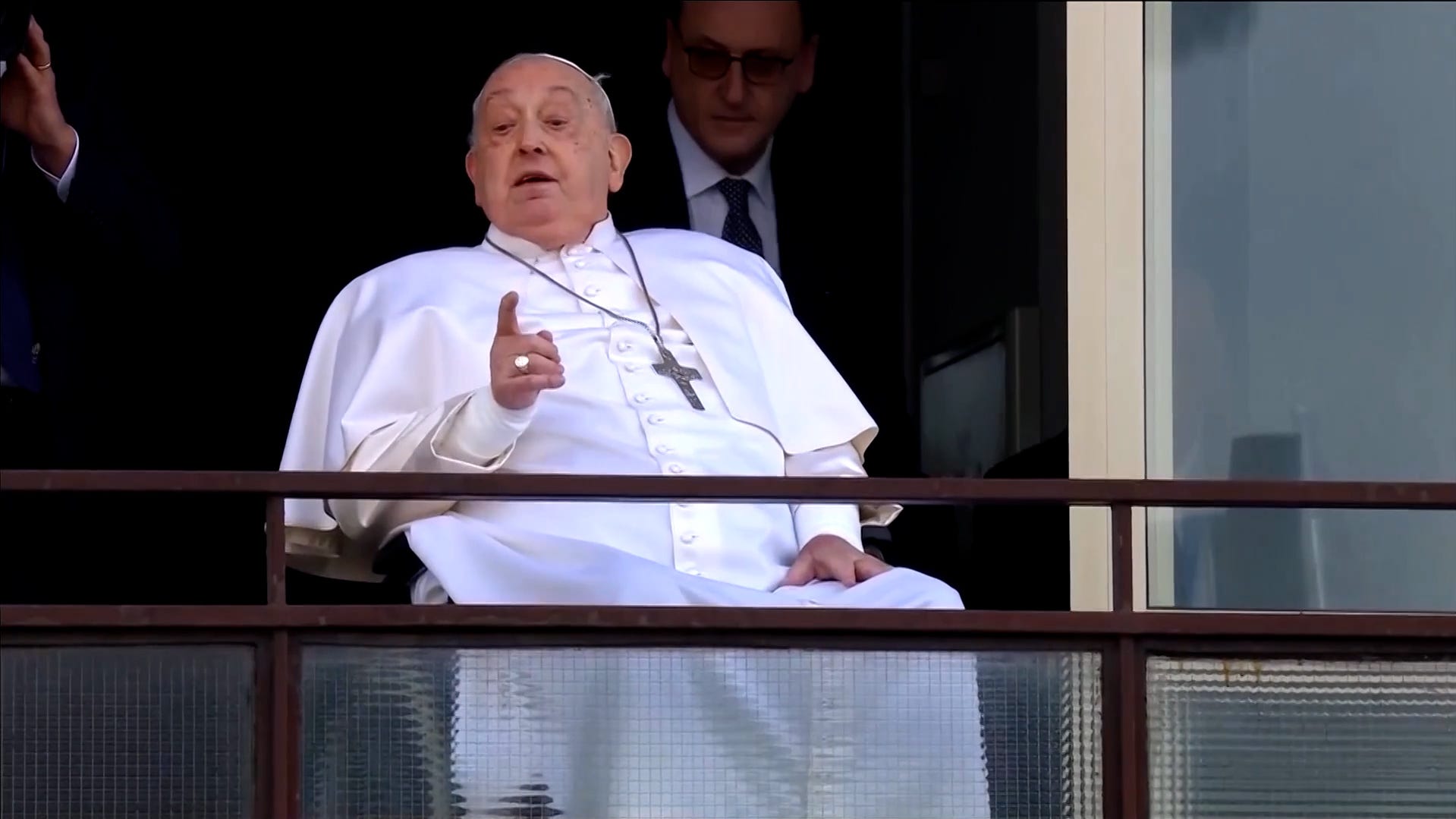'He might not survive': Pope Francis' doctors weighed halting treatment, letting him die

Pope Francis was so ill at one point during his recent hospital stay that physicians considered halting treatment to allow him to die peacefully, the head of the medical team treating the pontiff says.
Sergio Alfieri, a physician at Rome's Gemelli hospital, told Italy's Corriere della Sera in an interview published Tuesday that Feb. 28 was the "worst night" in the pope's five-week hospitalization. His condition suddenly worsened and he almost choked on on his vomit.
Alfieri said the team was aware there was a risk the pope might die. Francis remained conscious and realized how precarious the situation had become, Alfieri said.
"That evening was terrible. He knew, like us, that he might not survive the night," Alfieri said. "For the first time, I saw tears in the eyes of some of the people around him. People who, I understood during this period of hospitalization, sincerely love him, like a father."
Alfieri said the medical team had to decide whether to "stop and let him go or force it and try all the drugs and therapies possible." Utlimately, however, Francis himself would have made the decision on his fate, Alfieri said. The pope delegated health care decisions to Massimiliano Strappetti, his personal health assistant, who told the team to "try everything, don't give up."
Francis has a tired body but sharp mind
Alfieri said Francis has a "tired body, but the head is that of a 50-year-old." In the last week of hospitalization the pope began moving around the ward in his wheelchair, and once gave money to a staffer to buy pizza for someone who had helped him that day. Several times he took excursions around the ward, Alfieri said.
"We asked him if he wanted us to close the patients' rooms, but instead he looked for the eyes of the other patients," Alfieri said.
'Emotion of seeing the man become the pope again'
Francis was discharged from Gemelli hospital on Sunday with a positive prognosis and a warning to get plenty of rest for at least two months while continuing his recuperation. Before he left, he thanked the staff and waved to a crowd gathered to wish him well.
Alfieri said that balcony appearance was the moment in the pope's treatment that struck him the most.
"I saw him leave the room on the 10th floor of the Gemelli dressed in white," he said. "It was the emotion of seeing the man become the pope again."
Pope overcomes tough battle with respiratory issues
The 88-year-old pontiff was admitted to the hospital on Feb. 14 after battling bronchitis for more than a week as he struggled to speak and breathe during public appearances. During his hospitalization he suffered multiple attacks of "acute respiratory insufficiency," the Vatican said. Physicians performed procedures known as bronchoscopies to clear his air passages after bronchospasms, similar to asthma attacks, according to the Vatican.
While hospitalized, the pope was also diagnosed with a polymicrobial infection and then mild renal insufficiency but appeared to have overcome those issues as well.
Contributing: Reuters